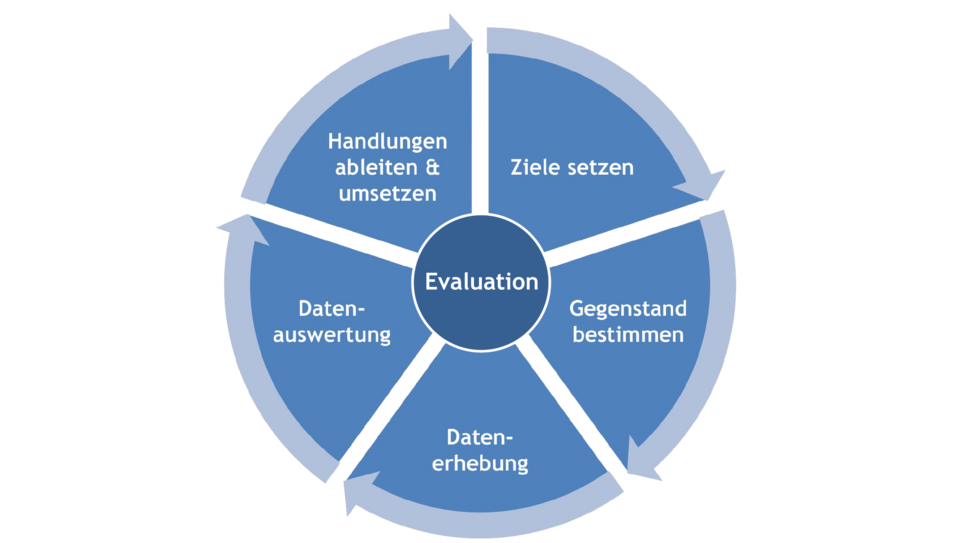What is it about?
We understand evaluation to be a targeted process for the systematic generation of knowledge, the subsequent assessment of which leads to reflective decision-making. Evaluation deals with the aspects summarized in the following question:
Which object is evaluated for which purpose, according to which criteria, by whom, and with which methods?
The determination of evaluation content, the correct selection of evaluation methods as well as a scientifically sound collection and analysis of data are anything but trivial. We are happy to support you in this regard, regardless of whether your interest lies more in the planning phase and goal definition of a program or project implementation or in an accompanying formative or rather summative evaluation, in which aspects of sustainability are also assessed. The following example can illustrate this.
How does it work?
We determine your need for action and support you in the realization of measures. Once the objective has been clarified, it is a matter of selecting the appropriate survey methodology (quantitative, qualitative) and the suitable measurement methods (questioning, observation, evaluations of existing (digital) data, selection of suitable question formats, target group-specific formulations, scaling, etc.). The type of data evaluation depends on the type of survey. We use appropriate quantitative, qualitative and mixed-methods analysis procedures. We are happy to prepare the results for you in a target group-specific manner and also take the next step with you, in which concrete actions are then derived and implemented.
Example Digital stress under work/industry 4.0 conditions
Digitization brings new forms of workplace stress for workers (including increasing skill requirements, performance monitoring, privacy disruptions). As the representative study "PräDiTec" conducted by the Federal Ministry of Education and Research shows, more than one in eight employees is affected by strong to very strong stress factors in digital work. Those who experience digital stress rate their general health worse, state that they are more exhausted and more irritable, and are more dissatisfied with their jobs. Compared to those with low levels of digital stress, those with high levels of digital stress are more likely to show health complaints (e.g., psychological impairment, musculoskeletal disorders) and perform worse at work. The good news is that if organizational and social factors are adapted to the new conditions caused by digitization, digital stress can be avoided.
The question is how the relationship triangle of people, technology and organization can be shaped under these conditions and which factors can be used as adjusting screws in the implementation of digital technology, new structures and processes.

